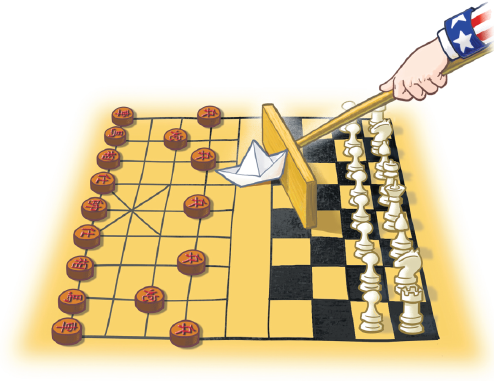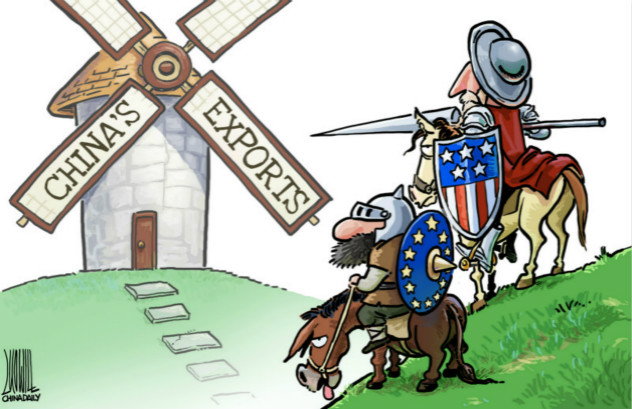Carrier group patrols pose new regional test
 |
| LUO JIE/CHINA DAILY |
US warships have begun a fresh round of "freedom of navigation" patrols in the South China Sea. Despite China's strong opposition, the USS Carl Vinson carrier strike group began what are described by the US navy as "routine operations" in the waters on Saturday.
They are the US Navy's first such operations since US President Donald Trump was sworn in, and sent a message that the new administration in the United States might be continuing with the strategy of rebalancing to the Asia-Pacific initiated by the previous administration.
However, as has been shown by previous patrols, such maneuvers only raise tensions in the waters. And the new patrols will only add more uncertainty to the regional security situation. After becoming highly volatile, the regional situation had become calmer after Rodrigo Duterte took office as president of the Philippines and adopted a different approach to the territorial disputes with China compared with his predecessor Benigno Aquino III.
That Duterte has invited both Chinese and US navies to clamp down on piracy by Abu Sayyaf, an Islamic State-linked group known for kidnapping and extortion, was widely viewed as a positive move for the two navies to cooperate to safeguard a major sea lane against the constant attacks by the Islamic militants based in southern Philippines, as they pose a threat to international shipping. The Philippines is also considering inviting Japan, which reportedly offered to send patrol ships to help it deal with surging piracy in the important sea lane.
Short of patrol vessels and aircraft, the current anti-piracy operations being jointly conducted by the Philippines, Malaysia and Indonesia face many problems. For example, despite their efforts, maritime kidnappings increased to a 10-year high last year. As such, assistance by the US and China to curb piracy could make a difference to the situation.
Collaborating with Beijing and Washington to provide public goods in the South China Sea is also in the diplomatic interests of Manila, and should smooth the ruffled feathers of the US, because despite his harsh, sometimes hostile, comments against its superpower ally, the Philippines remains open to the US' military presence in the region and committed to their bilateral defense agreements.
But like the other members of the Association of Southeast Asian Nations, the Philippines values the bloc's role in balancing the geopolitical competition in the region and may be not willing to take sides between the major players.
As Singapore's Defence Minister Ng Eng Hen said on Sunday : "If US foreign policy, de facto is predominantly anti-China, I think it will be a frustrating decade for many of us in ASEAN and in Asia. Similarly for China, if its efforts are viewed as means to usurp US as the resident Pacific power. Countries will de facto have to choose sides and be put into lose-win situations."
That Trump's security advisers are conservative, hawkish on China, and lack experience in dealing with Asian affairs therefore does not bode well. In all likelihood, Trump will not ignore his advisers' suggestions on Asia. As a result, the rebalancing to Asia-Pacific strategy, which Trump had shown little interest in carrying forward on the campaign trail, could be back in the geopolitical game.
The Asia-Pacific is a vast region, and there is room for both China and the US. But there is a risk that tensions between Beijing and Washington will escalate if Trump persists with his predecessor's divisive legacy.
The author is a researcher at the National Institute of International Strategy at the Chinese Academy of Social Sciences.
- China urges US to look to history before moving on South China Sea dispute
- China lauds Mattis' call for diplomatic push on South China Sea
- Foreign Ministry reiterates South China Sea sovereignty
- China, Vietnam agree to manage differences on South China Sea
- China says deployment of defensive facilities on South China Sea islands legitimate
- Commentary: London needs to tread cautiously on South China Sea
- China to make documentary on South China Sea ecology
- US must make right choice in South China Sea

























